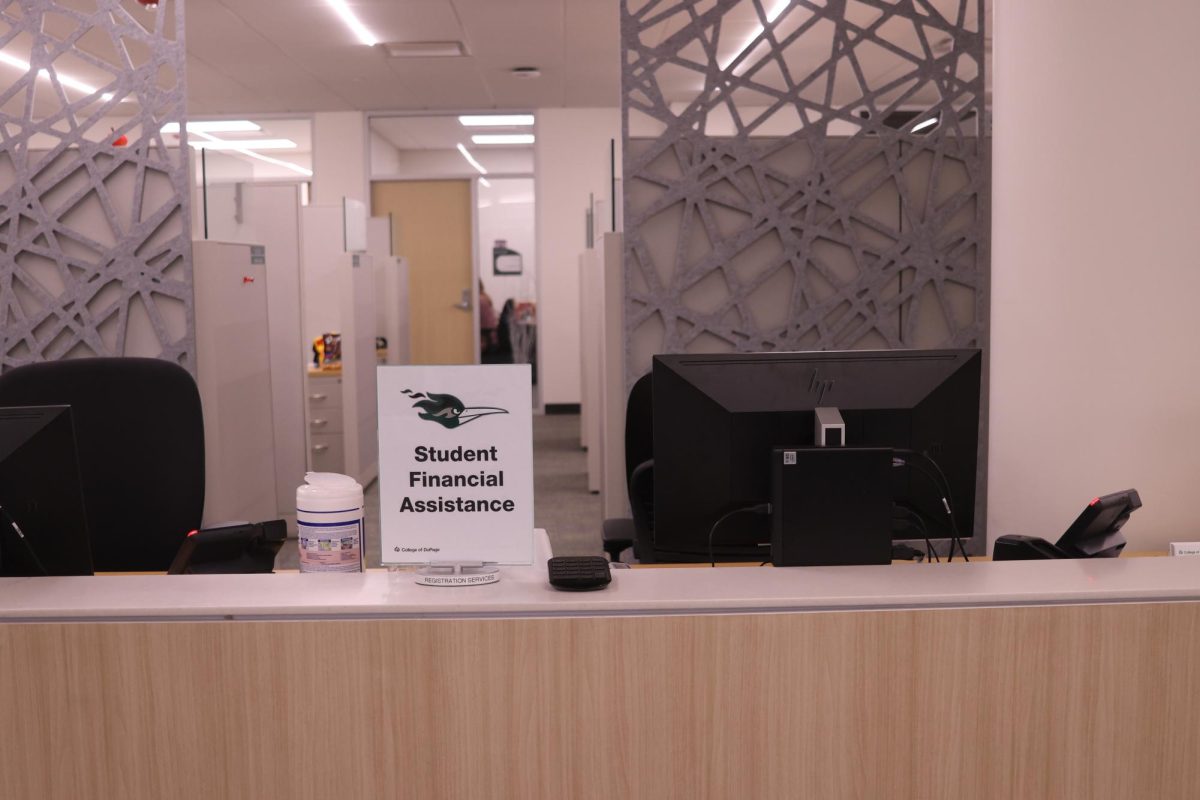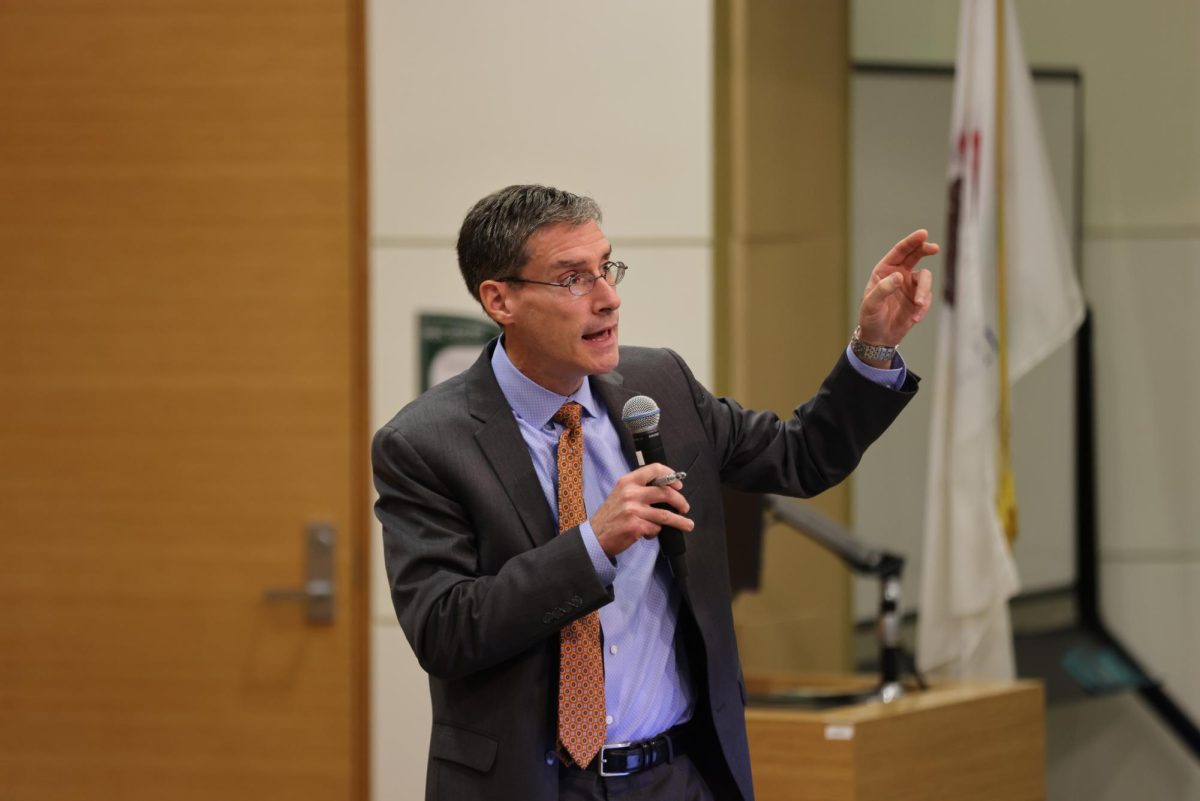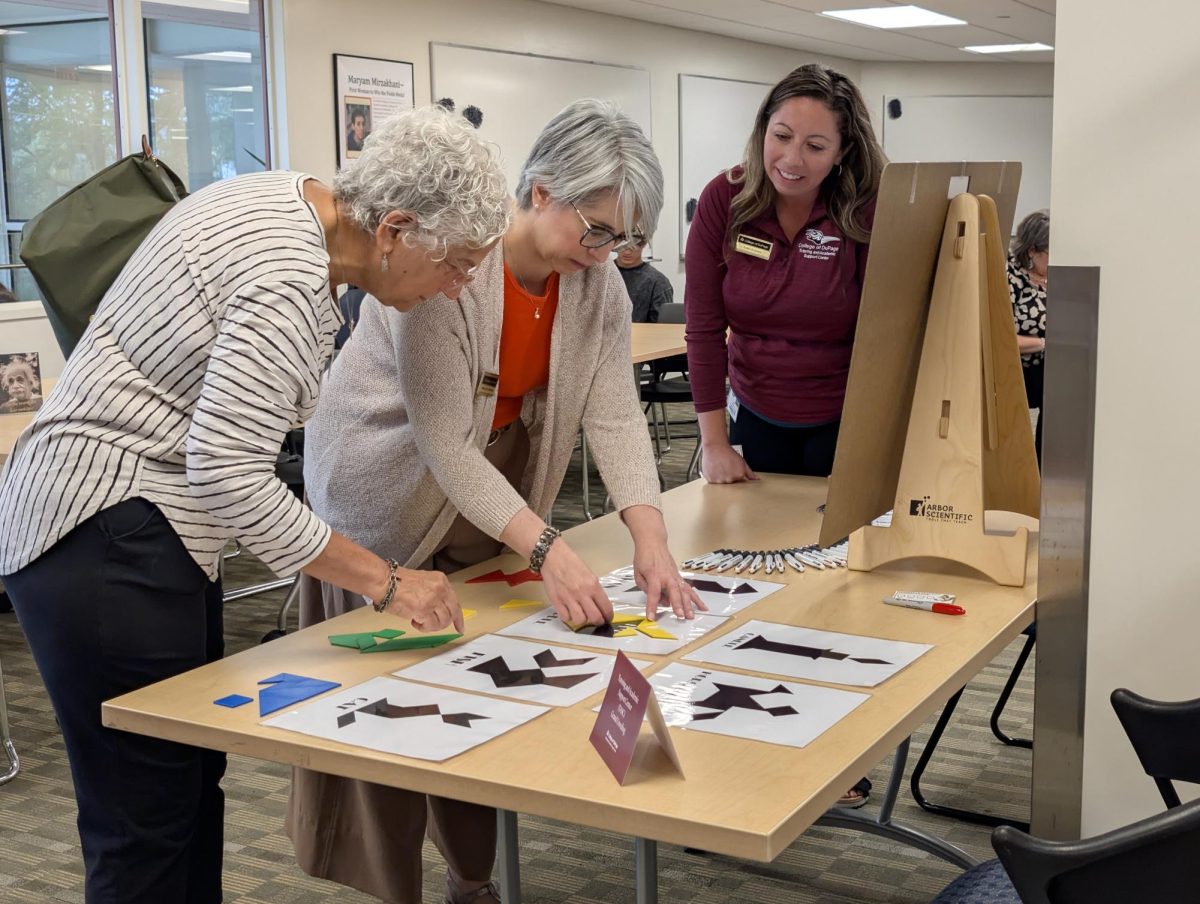Third-year student Tyna Woznica has relied on financial aid from the College of DuPage’s Office of Student Financial Assistance multiple times. Without that help, pursuing higher education becomes much more difficult.
“Many people, including myself, use federal aid to help support themselves as they build a more stable foundation,” Woznica said. “Even the smallest amount of aid can make a difference. Each opportunity given builds a higher ground for the next step along the way.”
Nearly 7,000 COD students, including Woznica, relied on financial aid last year, with the school disbursing approximately $30 million during the 2023-24 academic year, according to the Office of Student Financial Assistance. Now, upcoming changes could significantly impact how students apply for and receive aid.
On Jan. 20, President Donald Trump issued an executive order titled ‘Ending Radical and Wasteful Government DEI Programs and Preferencing,’ mandating that federal agencies terminate diversity, equity, and inclusion (DEI) initiatives. The next day, he issued a second order, ‘Ending Illegal Discrimination and Restoring Merit-Based Opportunity,’ directing educational institutions to eliminate DEI programs or risk losing federal funding. A federal judge has largely blocked the mandates from taking effect.
While COD is making internal adjustments to improve financial aid accessibility, federal policy changes through executive orders could bring additional shifts for students in the future. For now, Title IV funding remains unaffected.
“The reality is that the Department of Education is somewhat in the dark, just as much as we are,” Executive Director of Student Financial Assistance, Veteran Affairs and Scholarships Nicole LaCognata said. “They’re getting the same executive orders that we are. So they are trying their hardest to get information out to us, but there are a lot of unknowns.”
These uncertainties stem from ongoing federal budget negotiations, she said. The current budget for financial aid is approved through March 14, but lawmakers have yet to finalize funding for the next fiscal year, leaving programs like Pell Grants potentially at risk.
“I think that we’re aware that everything is going to get more confusing before it gets less confusing,” LaCognata said. “Within the next year, we’re going to be very diligent on informing students on any executive orders and how that may impact them. We’re going to do whatever we can do as a school, but until we know the impacts, we can’t plan for it.”
One major internal adjustment next year includes moving satisfactory academic progress (SAP) appeals online, allowing multiple appeals and rounding up completion rates.
“We run SAP at the end of each term based on grades and performance,” LaCognata said. “If you aren’t meeting SAP requirements within the first term, you get put on warning. If this continues, then we cannot give you aid for that semester until you’re back in good standing.”
To remain eligible for financial aid, students must maintain a 2.0 GPA, complete at least 67% of attempted courses, and complete their degree within 150% of the required credit hours, she said. Students who face difficult circumstances that negatively impact their GPA can submit an appeal explaining their situation. This appeal will be available exclusively online starting within the coming semesters.
“An appeal is going to ask, ‘Why are you not meeting these terms? Did something happen? Was there a family emergency?’” LaCognata said.
In addition to SAP policy updates, another concern is how students interpret their financial aid packages, particularly loans.
“What COD does right now is auto-packaged loans,” LaCognata said. “So when students receive their award letter, they see $50 to $500 in loans regardless,” LaCognata said. “Many students assume that if they get an award letter, they don’t have to pay it back. So they accept it. I’ve heard so many students ask, ‘Oh, what’s this $5,000 refund for?’ and we have to tell them they took out a loan without realizing it. I think it’s a disservice to students at COD to not make this more clear in initial the award letters”
Starting in the Fall 2025 semester, students will be required to apply for loans using a separate loan application, she said. This will now be conducted digitally through SoftDocs.
“We’re still working out all the kinks with it,” she said. “However, we’re going to take student feedback and see how we can make it easier, how we can put a budget process into it so students know exactly how much they need. This is all in the best interest of the students.”
Personalized financial assistance is also in the works, she said, though no implementation date has been set.
“The idea here is that students can come to one representative throughout their time here, and they can answer any question about the whole financial aid process,” LaCognata said. “We’re trying to cut down the shuffling around to different people.”
The Office of Student Financial Assistance is located in SSC 2280. They are open on Monday and Tuesday 8 a.m. to 6 p.m. and Wednesday through Friday 8 a.m. to 5 p.m. to assist with any student who may need help or advice with paying for college.









